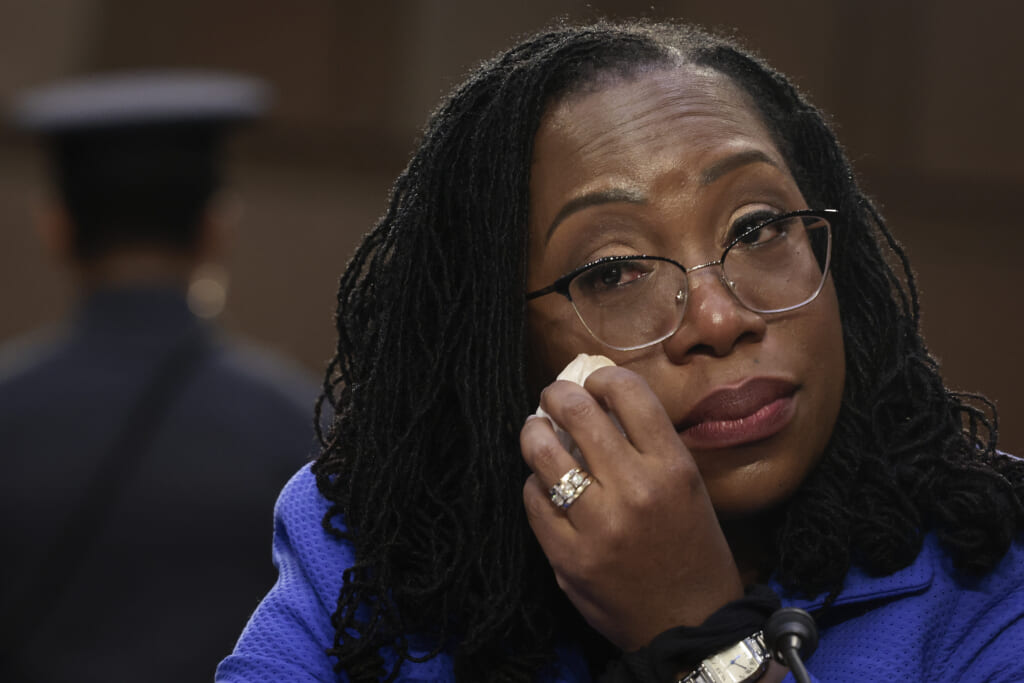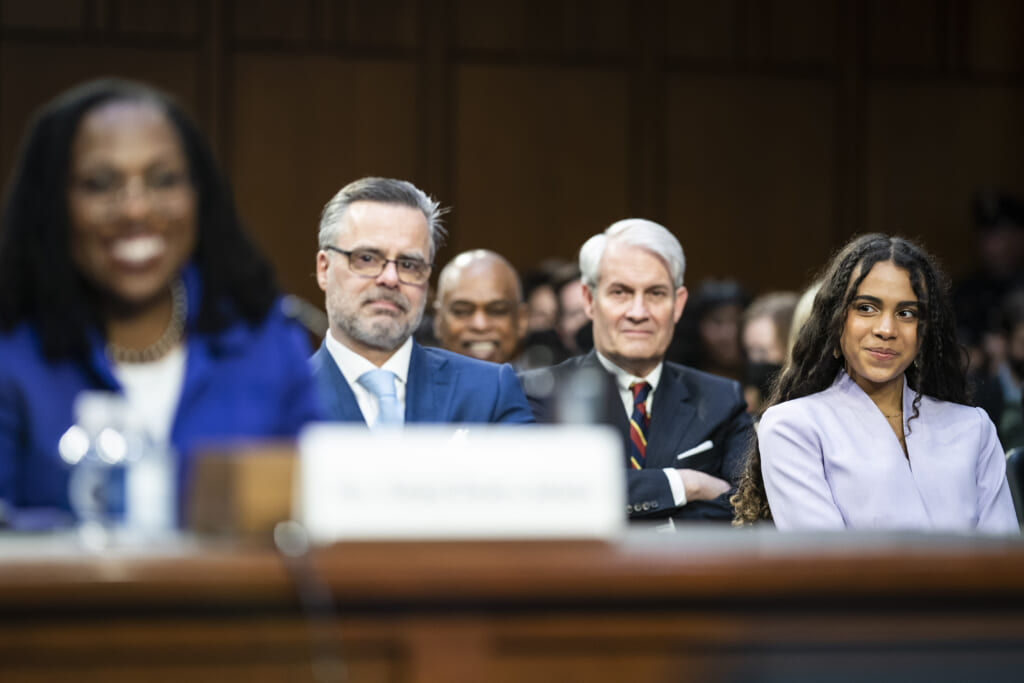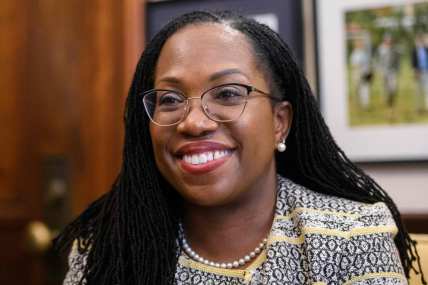As Supreme Court hearings for Ketanji Brown Jackson conclude, Black women beam with pride
“Tears glistened on the cheeks of Judge Ketanji Brown Jackson. The tears did not diminish her brilliance. They enhanced it," Bishop Vashti McKenzie told theGrio.

Thursday marked Day 4 in the confirmation hearings for Supreme Court nominee Ketanji Brown Jackson. It was not as fiery and emotional as Day 3, where Senator Cory Booker came to the defense of Judge Jackson following what many considered racial and sexist attacks by Republicans against Jackson who is poised to become the first Black woman Supreme Court justice.
As previously reported by theGrio, Jackson shed tears at Wednesday’s hearing during Senator Booker’s stirring speech in which he declared to the circuit court judge, “You are worthy!”
“Don’t worry my sister…today you are my star,” said Booker, referencing the star Harriet Tubman looked to as she freed the enslaved.
Booker called out the mistreatment of Jackson, a Black woman, amid an overwhelmingly white male-dominated arena and spoke to the broader hardships of Black women in the United States.
“Yesterday, we saw what happens when a strong African American woman under unimaginable scrutiny in the Senate Judiciary Committee’s proverbial lions’ den is publicly affirmed,” Bishop Vashti McKenzie, the first woman bishop in the AME church told theGrio.
“Tears glistened on the cheeks of Judge Ketanji Brown Jackson. The tears did not diminish her brilliance. They enhanced it.”

Bishop McKenzie added, “Every Black woman in America felt her tears. We sat with her during the interrogation. We smiled with her through the relentless racial sexist overtones. We beamed with her daughter and every mother’s daughter who watched their mother flourish under fire.”
“Judge Brown showed us that she is a legal iron fist in a velvet glove. Her intellect is cloaked in her faith and her humanity,” said the Texas bishop. “This has served her well at every level from being a public defender to a judge on the Federal Court of Appeals. She will serve America well as a Supreme Court judge.”
Many of the images from the hearing were shared on social media, sparking viral reactions. One of those images was of Jackson’s youngest daughter as the smiling teen looked with pride at her mother sitting before the Senate Judiciary Committee in this historic moment. It is that image that has been embraced as representative of the psyche of all Black women and girls and the pride of seeing Judge Jackson take her place in history.

On the list of witnesses offering testimony from various sectors on Thursday’s Supreme Court confirmation hearing was U.S. Congresswoman Joyce Beatty, chair of the Congressional Black Caucus. Within her speech, Congresswoman Beatty focused on “what it will mean to Black women and little girls” to witness Judge Jackson’s ascension to the high court. Beatty used the examples of journalist Ida B. Wells and Constance Baker Motley, the first Black woman to argue a case before the U.S. Supreme Court.
A large portion of the 59-member Congressional Black Caucus attended Jackson’s confirmation hearings. Many of those in attendance have been some of the CBC’s 29 Black women, including Congresswomen Sheila Jackson Lee of Texas and Congresswoman Stacey Plaskett of the U.S. Virgin Islands.

Melanie Campbell of the Black Women’s Roundtable said in a statement, “As a Black woman, I could not be more proud and thankful to Judge Ketanji Brown Jackson for her lifetime of service to our nation; and I along with millions of Black women and our allies will continue to have her back as she continues the path to make history by becoming the first Black woman to serve on the U. S. Supreme Court.”
As women are celebrating Jackson, Interim President & CEO of The Leadership Conference on Civil and Human Rights Wade Henderson referred to this historic moment by connecting it to the history of the confirmation of the late Supreme Court Justice Thurgood Marshall 55 years ago. Henderson noted that like Marshall, Jackson was also a defense attorney.
Thursday’s witnesses ranged from civil rights, law enforcement and politics. Their testimonies spoke to Judge Jackson’s time as a judge, as a member of the U.S. Sentencing Commission, and as a public defender. There were also witnesses who spoke about Jackson as a practitioner handing down justice, and the importance and significance of a Black woman being in the deliberating room.
In some of her closing remarks at Thursday’s hearing, Congresswoman Beatty emphasized the role of representation as the Senate is one step closer to confirming the nation’s first Black woman justice.
“I think it is an extremely powerful and needed message that we send out to all little girls, but specifically those who are of color. And I think what you saw yesterday, builds for our children, grandchildren and those yet [born] because even today, we are fighting for things that we were fighting for in 1963, ’64, ’65 and ’68,” said Beatty.
“So today could not only be landmark as we do this, it could propel us for the future that every little girl would then believe that she can soar.”
TheGrio is now on your TV via Apple TV, Amazon Fire, Roku, and Android TV. Also, please download theGrio mobile apps today!”



